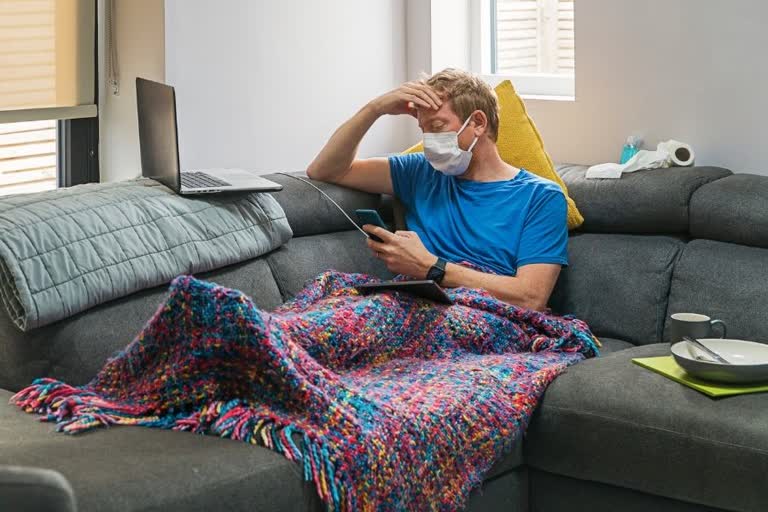Even if the virus has been cleared from the body, some continue to remain infected due to low immune response. Some complain of exertion even after a short walk. So far, the focus has been on saving lives during the pandemic, but with a growing recognition that people are facing long-term consequences of a COVID-19 infection, there is a need to revamp.
Dr. A.K. Arun, M.D.(Homoeopathy), a Delhi-based practicing Homoeopath and researcher and the Vice Chairman of the Board of Homoeopathic System of Medicine, Govt. of NCT Delhi shares some interesting insights.
He says that COVID creates a debilitating effect on people's lives. One of his patients recovered from COVID, but came complaining of exertion even after a short walk. So far, the focus has been on saving lives during the pandemic, but there is now a growing recognition that people are facing long-term consequences of a COVID-19 infection.
What is Long COVID?
There is no medical definition of ‘Long COVID’ available yet, however, the most common symptoms are fatigue, shortness of breath and brain fog. Other symptoms include a cough that won't go away, joint pain, muscle aches, hearing and eyesight problems, headaches, change in taste as well as damage to the heart, lungs, kidneys, and gut. Talking about the smell, some people may suffer from Parosmia, where a person’s sense of smell is distorted. Post second wave, people also reported cases of severe hair loss.
Besides physical issues, mental health problems have been reported including depression, anxiety, fear of death, fear of being alone, and struggling to think clearly. Long COVID is not just in people taking time to recover from a stay in intensive care. Even people with relatively mild infections can be left with lasting and severe health problems. One in 10 people still has COVID-19 symptoms after 3 or more weeks.
Long COVID can thoroughly affect a person's quality of life. Especially the person experiencing parosmia or having a distorted sense of taste may experience dissatisfaction. Besides this, due to breathlessness and other conditions, one may not be able to indulge in strenuous exercises. Also, there is no defined time till with the symptoms of long COVID may last.
How is the virus causing long COVID?
Some experts believe that one possible reason for long COVID can be the remains of the virus in the body. Although when recovered, the virus majorly is cleared from the body, it may remain in some parts in small pockets and affect that site.
The coronavirus can directly infect a wide variety of cells in the body and trigger an overactive immune response which also causes damage throughout the body. The World Health Organization has warned that widespread inflammation caused by coronavirus could lead to people having heart problems at a much younger age.
Another possibility can be an over-responsive immune system, which attacks not just the virus, but the body's own tissues as well. Besides this, there can be several other reasons, on which, the research is still going on. It is advised to speak to either your hospital or your physician if you are not recovering as quickly as you might expect.
Living with long COVID
Those who become ill with milder forms of COVID-19 are expected to recover in around 2 weeks. But an increasing number of people say they experience symptoms months after the initial illness is supposed to have worn off. This phenomenon, dubbed “long COVID,” has puzzled scientists and left those affected feeling drained and unsupported. The only way to avoid long COVID is to avoid getting infected by the virus at all. For this, using a mask, maintaining physical distancing, following proper hand, cough and personal hygiene as well as other precautions is necessary.
Can Homeopathy help?
In my practice, Dr. Arun says, a couple of patients every day complain of long illness with COVID-19, who were tested positive about 3 weeks ago. “In most cases, I am using homeopathic medicine & getting a good response. Medicines are Arsenicum album, Acid Sarcolacticum, Belladonna, Bryonia, Camphora, Occilococinum, etc. according to patients’ condition and the symptoms they experience”. However, since the treatment for everyone differs, Homoeopathic medicine must be taken strictly under the guidance of a qualified homeopathic physician only. Do not try to self-medicate.
Also Read: No plausible reason for long COVID to be less with Omicron: Experts



